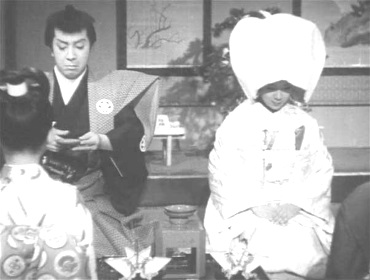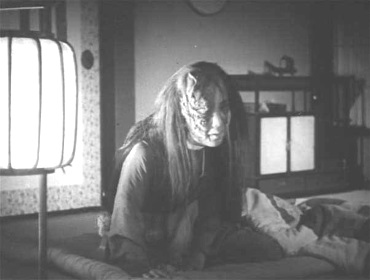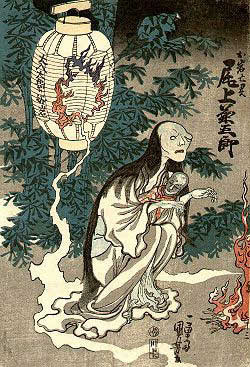The Ghosts of Yotsuya
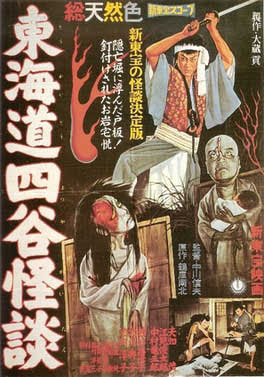
Director: Masaki Mori
Year: 1956
Rating: 7.0
Aka - Yotsuya Kaidan
The story of the Ghosts of Yotsuya has been
part of Japanese lore since the early 1800's when it was performed as a Kabuki
play. It is a tragic tale of murder, greed, betrayal and ghosts that has
been adapted into film a few times - in 1949 directed by Keisuke Kinoshita,
this one and the most famous was the 1959 version from Nobuo Nakagawa. That
was followed by a 1965 version from director Shiro Toyoda. This version is
directed by Masaki Môri who was also working for Shintoho, the same
studio as Nakagawa. He later directed The Ghosts of Kagami Pond. I expect
that it has been so popular as much for the melodrama that precedes the coming
of the ghosts. In this film and if I recollect correctly in the 1959 version,
the revengeful ghosts (Onryō) don't show up until two-thirds of the way through.
Until then it is just about a cruel husband and his desire to marry another
woman of higher status - but it really jumpstarts when revenge is in the
air.
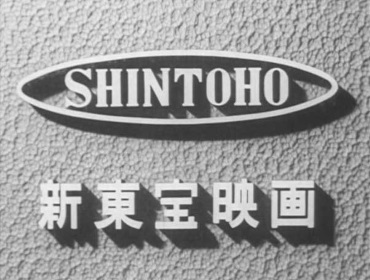
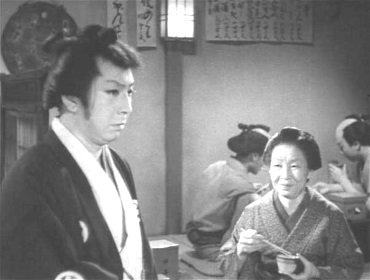
Lemon (a very young and baby-faced Tomisaburô
Wakayama) is a masterless samurai who is in love with Iwa (Chieko Sôma),
the daughter of a high ranking official. When he accosts her father on the
road, the father tells him that he can never marry his daughter because his
father was a tenant farmer. Those are fighting words to a Samurai and he
draws his sword and kills the father. And covers it up. He leaves with Iwa
in pretense that they are looking for the man who killed her father. Instead
though, they settle down into poverty with her working in a tea-house and
him unable to find work. His mother (Chôko Iida) who comes with them
is a wizened Mother MacBeth figure trying to get her son to rise in society
by dumping Iwa and marrying Ume (Akeme Tsukushi), the daughter of an upper
class family. She is wonderfully evil and this actress had been in films
since the 1920s, among them some of Ozu's films.
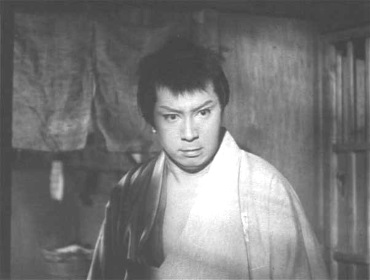
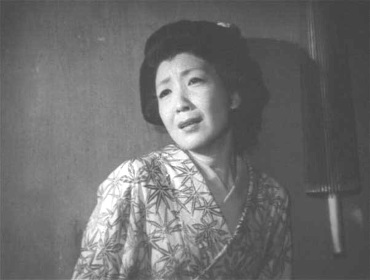
To his credit and why he is a somewhat sympathetic
and tragic figure, Lemon refuses to saying he loves Iwa. He killed for her.
But the mother presses and presses him and finally he poisons his wife with
something that deforms her face first. He also kills a man who was part of
the plot and throws them both into a pond. A favorite resting place for victims.
At this point the film becomes great fun as both victims return looking for
payback.
The man asking time after time "Where is
my money. You promised to pay me" and Iwa taking on the guise of the household
of Ume's. This is a great role for Tomisaburô Wakayama who slowly descends
into madness and guilt at what he has done. And as a plus he gets to perform
a bit of Kabuki which he had studied as a young man along with his brother
Shintaro Katsu. And also has a sword fighting scene. It trudges a bit in
the first part but we know the ghosts are coming.






